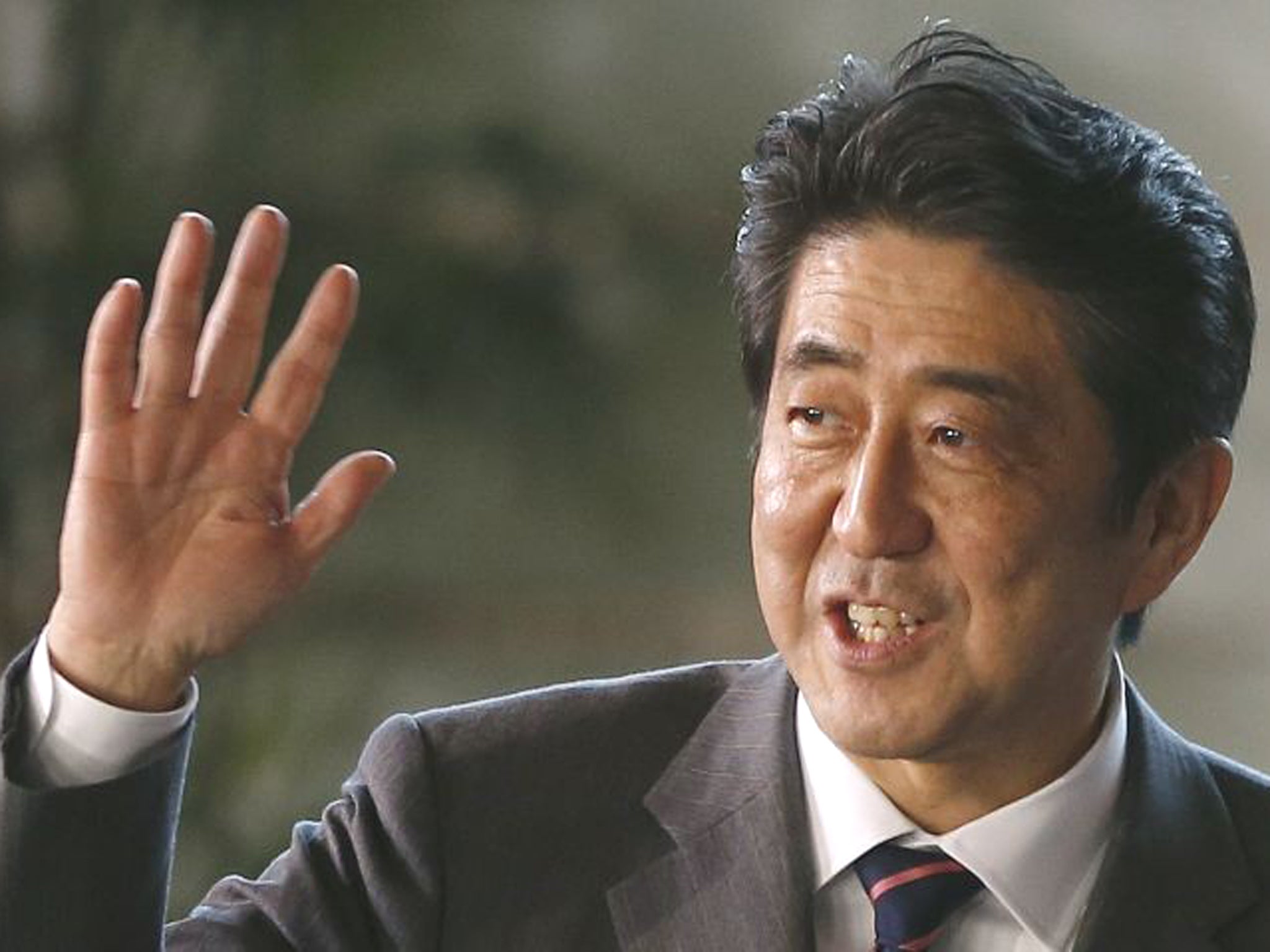Veteran Shinzo Abe returns as Japan's leader
New administration faces souring relations with China

Your support helps us to tell the story
From reproductive rights to climate change to Big Tech, The Independent is on the ground when the story is developing. Whether it's investigating the financials of Elon Musk's pro-Trump PAC or producing our latest documentary, 'The A Word', which shines a light on the American women fighting for reproductive rights, we know how important it is to parse out the facts from the messaging.
At such a critical moment in US history, we need reporters on the ground. Your donation allows us to keep sending journalists to speak to both sides of the story.
The Independent is trusted by Americans across the entire political spectrum. And unlike many other quality news outlets, we choose not to lock Americans out of our reporting and analysis with paywalls. We believe quality journalism should be available to everyone, paid for by those who can afford it.
Your support makes all the difference.Old-guard veteran Shinzo Abe was voted back into office as prime minister of Japan today and immediately named a new cabinet, ending three years of liberal administrations and restoring power to his conservative, pro-big-business party that has run the country for most of the post-Second World War era.
Abe, whose nationalist positions have in the past angered Japan's neighbours, is the country's seventh prime minister in just over six years. He was also prime minister in 2006-2007 before resigning for health reasons that he says are no longer an issue.
The outspoken and often hawkish leader has promised to restore growth to an economy that has been struggling for 20 years. His new administration also faces souring relations with China and a complex debate over whether resource-poor Japan should wean itself off nuclear energy after last year's earthquake and tsunami caused a meltdown at an atomic power plant.
On top of that, he will have to win over a public that gave his party a lukewarm mandate in elections on December 16, along with keeping at bay a still-powerful opposition in parliament. Though his party and its Buddhist-backed coalition partner is the biggest bloc in the more influential lower house, Abe actually came up short in the first round of voting in the upper house, then won in a runoff.
Capitalising on voter discontent with the left-leaning Democratic Party of Japan, Abe has vowed to shore up the economy, deal with a swelling national debt and come up with a fresh recovery plan following last year's tsunami disaster, which set off the worst nuclear crisis since Chernobyl.
"Disaster reconstruction and economic recovery are our first and foremost tasks," new chief cabinet secretary Yoshihide Suga said in announcing what he called a "crisis breakthrough cabinet".
In foreign policy, Abe has stressed his desire to make Japan a bigger player on the world stage, a stance that has resonated with many voters who are concerned that their nation is taking a back seat economically and diplomatically to China.
He has said he will support a reinterpretation of Japan's pacifist post-war constitution to loosen the reins on the military, stand up to Beijing over a continuing territorial dispute and strengthen Tokyo's security alliance with Washington. Beijing has already warned him to tread carefully, and will be watching closely to see if he tones down his positions now that he is in office.
Abe led the Liberal Democratic Party to victory in nationwide elections this month to cement his second term as Japan's leader.
"I feel as fresh as the clear sky today," Abe told reporters before today's parliamentary vote, adding that he wanted to get right down to business.
His new Cabinet will feature another former prime minister, Taro Aso, as finance minister. Heading the foreign ministry is Fumio Kishida, an expert on the southern island of Okinawa, where many residents angry over crime and overcrowding want a big reduction in the number of US troops they host - now at about 20,000. The new defence minister is Itsunori Onodera, who was in Abe's previous administration.
AP
Join our commenting forum
Join thought-provoking conversations, follow other Independent readers and see their replies
Comments